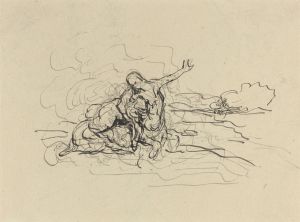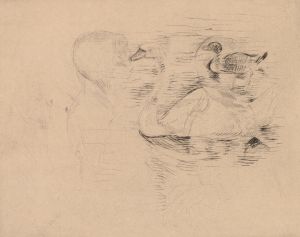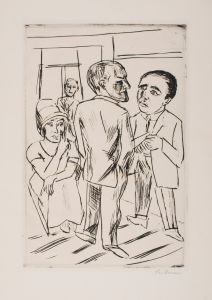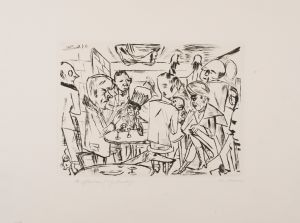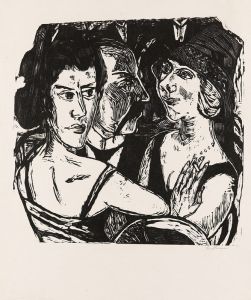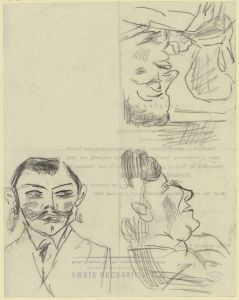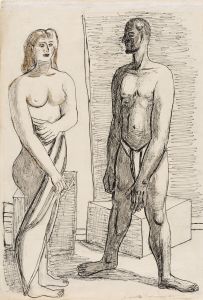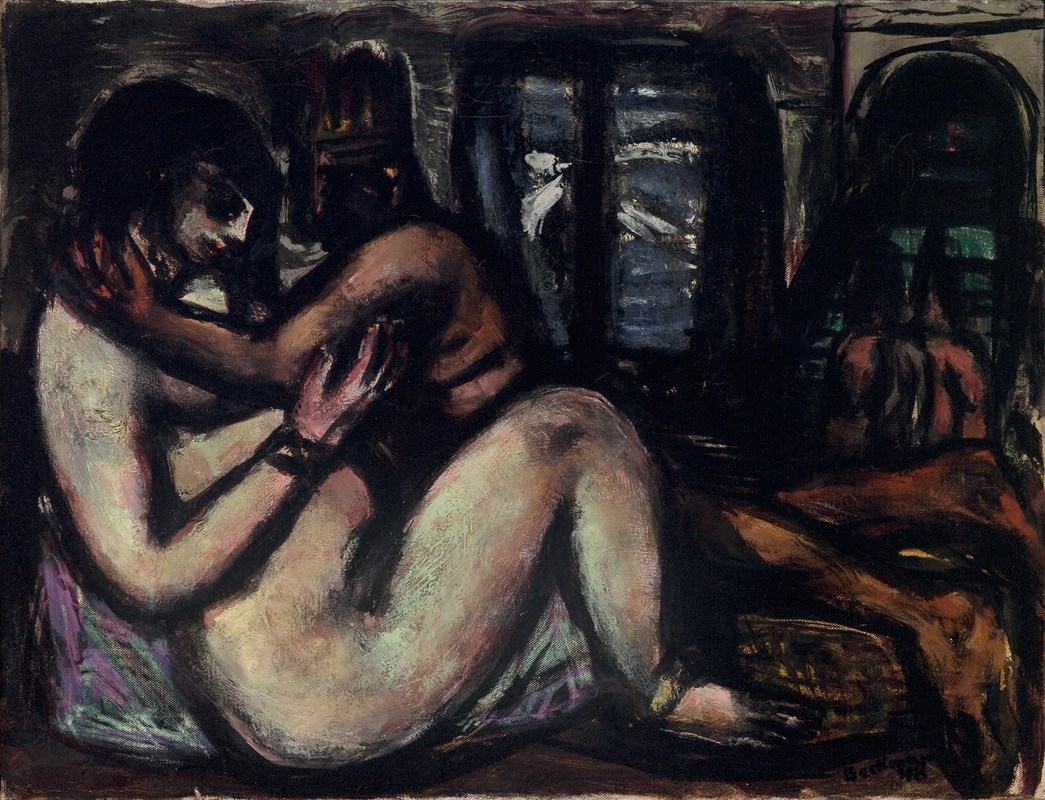
Leda
A hand-painted replica of Max Beckmann’s masterpiece Leda, meticulously crafted by professional artists to capture the true essence of the original. Each piece is created with museum-quality canvas and rare mineral pigments, carefully painted by experienced artists with delicate brushstrokes and rich, layered colors to perfectly recreate the texture of the original artwork. Unlike machine-printed reproductions, this hand-painted version brings the painting to life, infused with the artist’s emotions and skill in every stroke. Whether for personal collection or home decoration, it instantly elevates the artistic atmosphere of any space.
Max Beckmann, a prominent German painter and printmaker, created "Leda" in 1946. This artwork is a modern interpretation of the mythological story of Leda and the Swan, a subject that has been explored by numerous artists throughout history. The myth originates from Greek mythology, where Zeus, in the guise of a swan, seduces or assaults Leda, resulting in the birth of children who play significant roles in various mythological narratives.
Beckmann's "Leda" reflects his distinctive style, characterized by bold lines, dramatic compositions, and a sense of psychological tension. The painting is rendered in oil on canvas and demonstrates Beckmann's use of vibrant colors and fragmented forms, which are hallmarks of his mature work. His approach to the myth diverges from traditional depictions, as he often infused his works with a sense of modernity and personal interpretation, moving away from classical ideals of beauty and harmony.
The painting was created during Beckmann's time in exile in the United States, where he had moved in 1947 after fleeing Nazi Germany and spending several years in Amsterdam. This period of his life was marked by a sense of displacement and reflection, which often found expression in his art. While "Leda" retains the mythological theme, it also carries Beckmann's characteristic exploration of human emotions, existential questions, and the complexities of the human condition.
"Leda" is part of Beckmann's broader body of work, which frequently revisited mythological and allegorical themes. These subjects allowed him to address timeless and universal ideas while also reflecting on the turbulent historical context of his time. Beckmann's works often contain layers of symbolism and ambiguity, inviting viewers to engage with them on multiple levels.
The painting is housed in the collection of the Saint Louis Art Museum in St. Louis, Missouri. It remains an important example of Beckmann's post-war oeuvre and his ability to reinterpret classical themes through a modern lens. As with much of Beckmann's work, "Leda" continues to be studied and appreciated for its artistic innovation and its capacity to provoke thought and dialogue.







